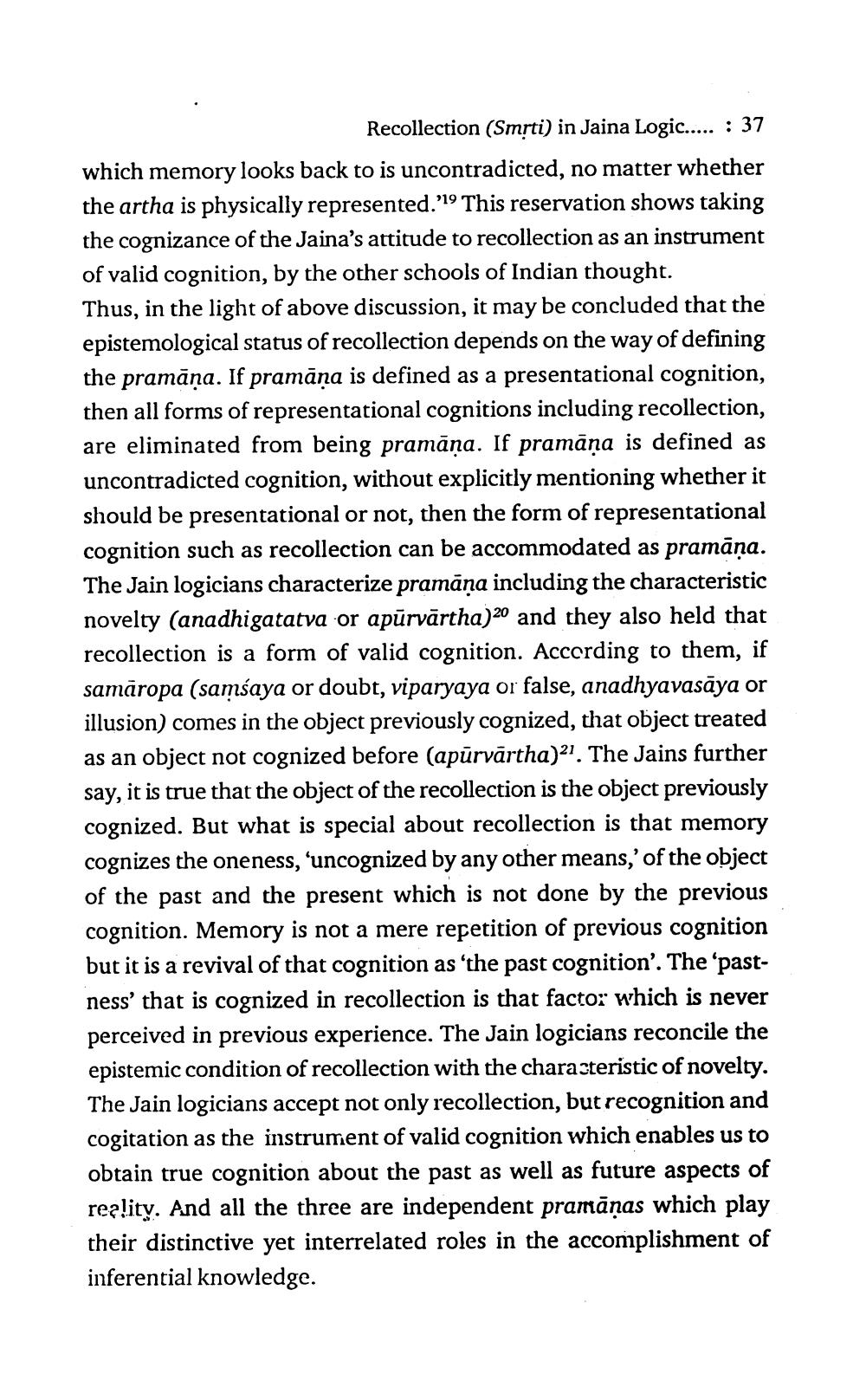________________
Recollection (Smrti) in Jaina Logic..... : 37 which memory looks back to is uncontradicted, no matter whether the artha is physically represented.'19 This reservation shows taking the cognizance of the Jaina's attitude to recollection as an instrument of valid cognition, by the other schools of Indian thought. Thus, in the light of above discussion, it may be concluded that the epistemological status of recollection depends on the way of defining the pramāņa. If pramāṇa is defined as a presentational cognition, then all forms of representational cognitions including recollection, are eliminated from being pramāņa. If pramāṇa is defined as uncontradicted cognition, without explicitly mentioning whether it should be presentational or not, then the form of representational cognition such as recollection can be accommodated as pramāņa. The Jain logicians characterize pramāņa including the characteristic novelty (anadhigatatva or apūrvārtha)20 and they also held that recollection is a form of valid cognition. According to them, if samāropa (samsaya or doubt, viparyaya or false, anadhyavasāya or illusion) comes in the object previously cognized, that object treated as an object not cognized before (apūrvārtha)21. The Jains further say, it is true that the object of the recollection is the object previously cognized. But what is special about recollection is that memory cognizes the oneness, 'uncognized by any other means,' of the object of the past and the present which is not done by the previous cognition. Memory is not a mere repetition of previous cognition but it is a revival of that cognition as 'the past cognition'. The 'pastness' that is cognized in recollection is that factor which is never perceived in previous experience. The Jain logicians reconcile the epistemic condition of recollection with the characteristic of novelty. The Jain logicians accept not only recollection, but recognition and cogitation as the instrument of valid cognition which enables us to obtain true cognition about the past as well as future aspects of reality. And all the three are independent pramāņas which play their distinctive yet interrelated roles in the accomplishment of inferential knowledge.




